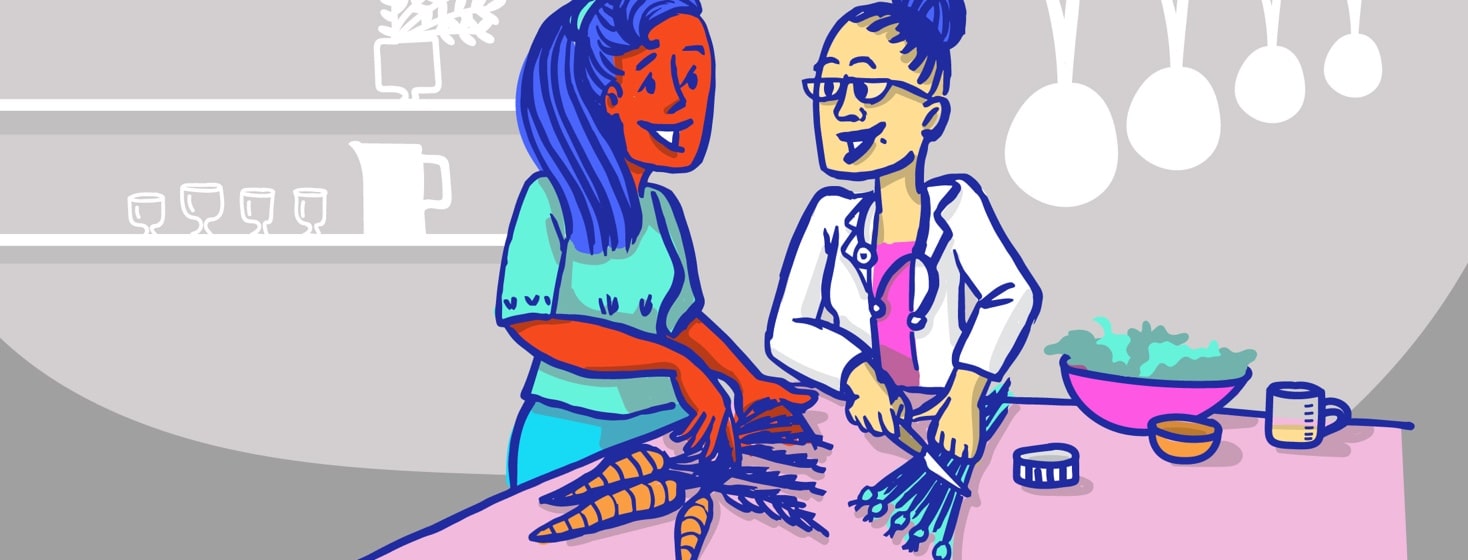Diet Can Impact Endometriosis, But Few Doctors Are Talking About It
More than a year ago, I decided to change the way I approached food. I did this to alleviate some of the symptoms I lived with as an endometriosis patient. I expected no miracles and no cure for my disease, but I wanted to live a more comfortable life. There were many options I could choose from: gluten-free, a vegetable-based diet, or the aptly named endo-diet. An endometriosis diet seeks to reduce the intake of inflammatory foods, since inflammation is one of the biggest sources of pain and discomfort.
In my case, I went plant-based and avoided gluten as much as possible. It took a while for my body to adjust, but now I am happier and experience less discomfort. It wasn’t difficult to find useful articles, even cookbooks, to switch and continue to eat healthily. On endometriosis support groups, talk of diet happens almost daily.
Why didn't my doctor suggest this?
Yet, I would have liked to have received some guidance from my doctor. In my experience, most health professionals do not discuss or offer advice on dietary choices to manage endometriosis. As a patient, I often feel dispirited talking about the changes I made, even when trying to explain how eating differently has become a main source of relief. I don’t get any reassurance on whether this is something I should actually be doing. The only thing my doctors seem to want to discuss are hormonal treatments and whether or not I want to have children.
Studies like the one by the Fred Hutchinson Cancer Research Center in Seattle have linked diet with endometriosis.1 Their research concluded that consumption of red meat could contribute to the development of endometriosis. The theory behind points to hormonal levels and how these behave with regular ingestion of red meat.
On the other hand, vegetables have long been considered huge sources of fibre, capable of reducing levels of estrogen (which are high among endometriosis patients). Antioxidants found in vegetables also play a role in reducing the effects of oxidative stress. Oxidative stress is thought to promote the growth of adhesions and scar tissue.
Silence around dietary changes
Even with all of this evidence, health practitioners fail to mention diet.
When we are diagnosed with endometriosis, we are told about hormonal treatments and implants, or surgery. We are prescribed painkillers and whatever medication to manage our pain levels. Yet no one seems to mention diet.
It is up to patients to carry out their own research, which is risky. We live in an age in which we are bombarded with information, a lot of it untrue. It would be useful to be guided through achievable solutions like diet changes, without having to seek out - and pay for - specialized nutritionists. Furthermore, for many people, unless the advice comes from a doctor, it is quickly dismissed as untrustworthy.
The right dietary changes can benefit millions of women with endometriosis. It can be as simple as reducing the amount of gluten in our diets, or choosing dairy-free options. But until doctors begin to talk diet, I fear we will be doing this unsupported.

Join the conversation